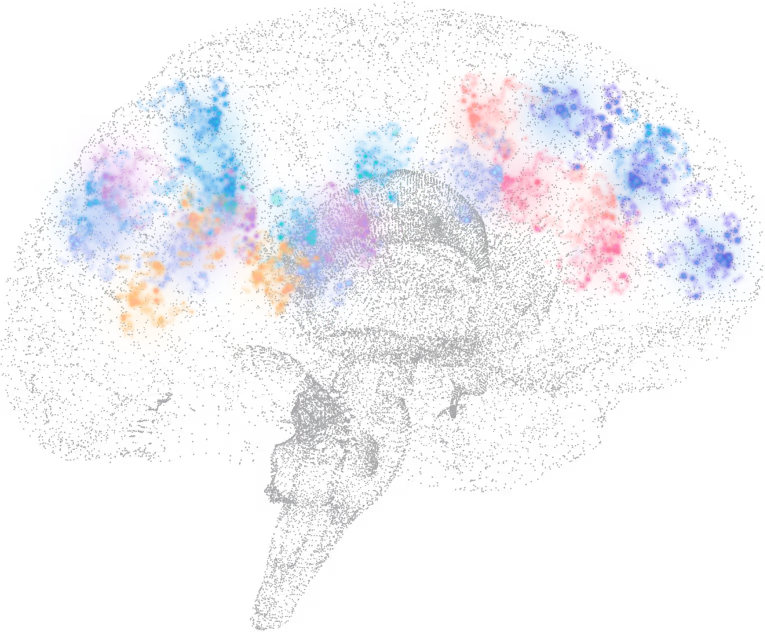Matter’s clinical research is dedicated to finding a universal biomarker for happiness. By studying participants’ brain activity in MRIs, Matter has mapped the activity of six neurotransmitters in the brain that are responsible for human happiness: dopamine, testosterone, serotonin, oxytocin, cannabinoids, and opioids.

Activating these neurotransmitters makes us feel good, helps us create memories, and builds neuroplasticity in our brains.
In the near-term, increases in neuroplasticity help us grow into smarter, more empathetic, and more creative humans. Over the long-term, higher levels of neuroplasticity correlate with longer, healthier, happier lives.
See references
A new framework for understanding human happiness
May 2024 — Matter Neuroscience
Matter Neuroscience is working to address our global mental health challenge by unifying the fields of positive psychology, high field brain imaging technology, and molecular neuroscience to help individuals cultivate happiness in their daily lives. This unique study program has developed universal biological tools to provide personalized, actionable guidance for living a happier life. This paper outlines the Matter approach and the science behind it.
Matter app significantly improves life evaluation and positive affect in Matter game participants after six weeks
August 2020 — Matter Neuroscience and Fictive Kin
Subjective well-being or happiness has been shown to have a profound impact on living a longer and healthier life. We designed a real-life game, supported by a digital app, to guide game participants towards positive memory creation, while monitoring changes in subjective well-being over time. One-hundred and one healthy people participated. The game period showed an increase in rating for life evaluation in a subjective well-being evaluation by 45% vs. 7% in the Game group and Control group, respectively.Matter Neuroscience is working to address our global mental health challenge by unifying the fields of positive psychology, high field brain imaging technology, and molecular neuroscience to help individuals cultivate happiness in their daily lives. This unique study program has developed universal biological tools to provide personalized, actionable guidance for living a happier life. This paper outlines the Matter approach and the science behind it.
Happiness matters: Distributed brain patterns underlie different positive emotions in OFC
June 2024 — Pizzuti et al.
Positive psychology is a promising branch in the field of psychology and the distinction of positive emotions receives increasing attention. Theoretical frameworks have proposed a "family tree" of nine positive emotions that developed during evolution. However, the neuroscientific basis of these emotions is poorly understood. To shed light on this issue, a crucial aspect is to effectively elicit specific positive emotions.
We utilized a novel, individualized approach to collect and rate positive emotions of memories. These memories were then used in fMRI experiments to investigate neural representations of positive emotions in healthy volunteers.
We were able to show distinct responses to individual positive emotions in our cohort. This opens the door for in-depth investigations of positive emotions as the experimenter can rely on the participants’ information about what they felt in the scanner. Furthermore, this approach may aid patients to engage in positive memories during clinical neurofeedback studies using emotion regulation training for depression treatment. Our insights also offer a promising path towards a biomarker of subjective well-being.